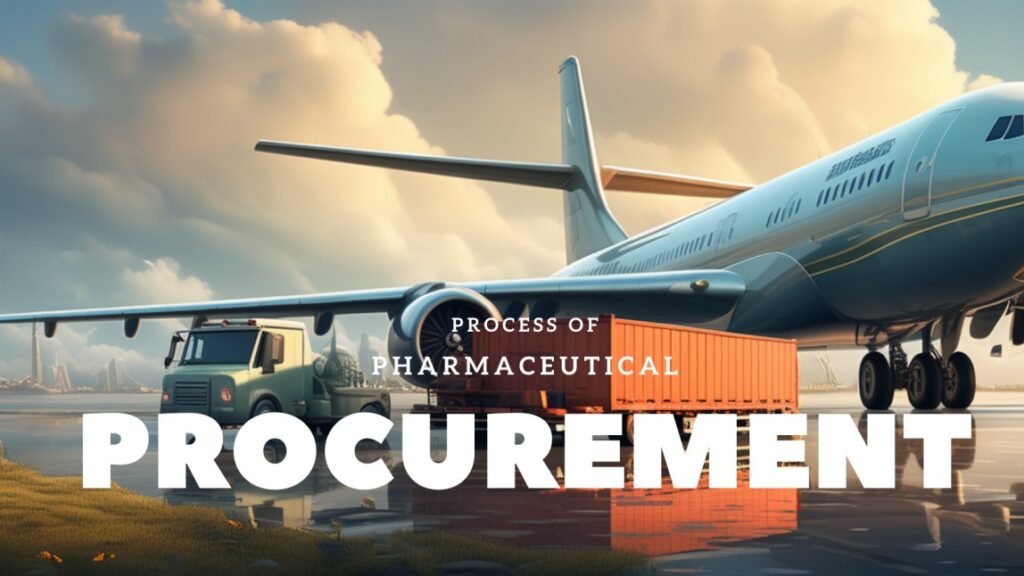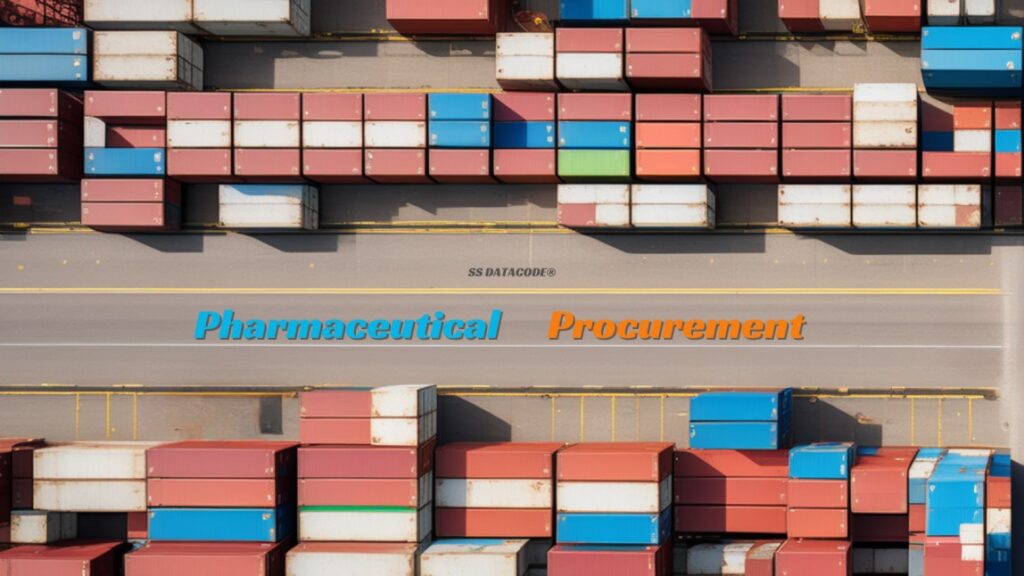What is Pharmaceutical Procurement?
Pharmaceutical procurement is a mission-critical function within the healthcare industry, playing a pivotal role in ensuring the availability, affordability, and safety of medications.
Pharmaceutical procurement is a multifaceted process that demands meticulous planning, regulatory compliance, and strategic thinking. As the pharmaceutical sector is characterized by stringent quality standards, complex supply chains, and rapid advancements in medical science, pharmaceutical procurement plays a pivotal role in ensuring the availability of safe and effective medications.
Importance of Pharmaceutical Procurement
The importance of pharmaceutical procurement extends beyond traditional supply chain management; it directly influences patient outcomes, healthcare system efficiency, and the overall well-being of communities. Let’s explore the importance of pharmaceutical procurement in the broader healthcare landscape.
Ensuring Access to Essential Medications
Access to medications is a cornerstone of effective healthcare delivery, and procurement ensures that healthcare providers have the necessary pharmaceuticals to treat patients.
Quality and Safety Assurance
By sourcing high-quality raw materials and finished products, pharmaceutical procurement contributes directly to patient safety, preventing issues such as contamination or substandard products.
Compliance with Regulatory Standards
Failure to comply with regulatory standards can have severe consequences, including legal actions and damage to a pharmaceutical company's reputation.
Cost Management and Affordability
Supporting Healthcare System Resilience
Innovation and New Drug Development
Strategic Supplier Relationships
Public Health Impact

Pharmaceutical procurement is a linchpin in the healthcare ecosystem, influencing the availability, quality, and affordability of medications. Its impact ripples through healthcare systems, from ensuring that patients have access to essential treatments to supporting innovation and new drug development.
The importance of pharmaceutical procurement is underscored by its role in upholding patient safety, regulatory compliance, and the overall resilience of healthcare systems. As the healthcare landscape continues to evolve, the strategic and responsible management of pharmaceutical procurement will remain fundamental to achieving the goals of accessible, safe, and effective healthcare for all.
Challenges in Pharmaceutical Procurement
Stringent Regulatory Compliance
Meeting the stringent regulatory requirements of the pharmaceutical industry is a constant challenge. Non-compliance can lead to severe consequences, including product recalls, legal actions, and damage to the reputation of the pharmaceutical company.
Supply Chain Complexity
The pharmaceutical supply chain is intricate, involving multiple stakeholders, including manufacturers, suppliers, distributors, and pharmacies. Coordinating these diverse elements while maintaining quality and compliance is a significant challenge.
Globalization and Geopolitical Factors
Globalization has expanded pharmaceutical supply chains across borders, introducing complexities related to geopolitical factors, trade policies, and diverse regulatory landscapes. Changes in these factors can impact the sourcing and availability of critical materials.
Quality Assurance
Ensuring the quality of raw materials and components is paramount in pharmaceutical procurement. Procurement teams must carefully vet suppliers, conduct audits, and implement robust quality assurance processes to guarantee the safety and efficacy of pharmaceutical products.
Cost Pressures and Pricing Dynamics
The pharmaceutical industry faces constant pressure to control costs while maintaining high-quality standards. Negotiating favorable terms with suppliers, optimizing processes, and exploring cost-saving opportunities are ongoing challenges.

Process of Pharmaceutical Procurement
The pharmaceutical procurement process involves a series of strategic and operational steps aimed at acquiring pharmaceutical products, raw materials, and services necessary for drug development, manufacturing, and distribution. This process is critical to ensuring a consistent and reliable supply of medications while adhering to regulatory standards, quality assurance, and cost-effectiveness.
Below is an overview of the key stages in the pharmaceutical procurement process:
Identifying Needs
Internal Stakeholder Collaboration
Procurement begins by collaborating with various internal stakeholders, including healthcare professionals, pharmacists, and research and development teams, to understand the organization’s pharmaceutical needs.
Supplier Identification and Evaluation
Market Research
Procurement teams conduct market research to identify potential suppliers. This involves assessing supplier capabilities, reputation, financial stability, and compliance with regulatory standards.
Supplier Qualification
Rigorous qualification processes are implemented to ensure that selected suppliers meet the necessary quality and regulatory requirements. This may involve site visits, audits, and thorough documentation review.
Request for Proposal (RFP) or Quotation (RFQ)
Documentation
Procurement teams create RFPs or RFQs detailing the organization’s requirements, specifications, and evaluation criteria.
Supplier Response
Suppliers submit detailed proposals or quotes in response to the RFP or RFQ. These documents include information on pricing, delivery schedules, quality control processes, and other relevant details.
Negotiation and Contracting
Negotiations
Procurement professionals engage in negotiations with suppliers to finalize terms and conditions. This includes discussions on pricing, payment terms, delivery schedules, and any other contractual obligations.
Contract Drafting
A formal contract is drafted, outlining the agreed-upon terms. The contract is reviewed by legal and regulatory teams to ensure compliance with relevant laws and regulations.
Order Placement and Expediting
Purchase Orders
Once the contract is finalized, purchase orders are issued to selected suppliers. These documents specify the quantity, delivery date, and other relevant details.
Order Tracking
Procurement teams monitor and expedite the delivery process, ensuring that products arrive on time and in compliance with the agreed-upon specifications.

Receiving and Inspection
Goods Receipt
Upon receipt of pharmaceutical products, the goods are inspected to verify their quality, quantity, and adherence to specifications.
Quality Control
Quality control processes are implemented to ensure that the received pharmaceuticals meet the organization’s quality standards and regulatory requirements.
Invoice Verification and Payment
Invoice Matching
Invoices from suppliers are matched against the corresponding purchase orders and goods receipts to verify accuracy.
Payment Processing
Approved invoices are processed for payment, adhering to agreed-upon payment terms.
Supplier Relationship Management (SRM)
Ongoing Communication
Establishing and maintaining strong relationships with suppliers is crucial. Regular communication, performance evaluations, and collaborative initiatives contribute to effective supplier relationship management.
Continuous Improvement
Procurement teams work with suppliers to identify areas for continuous improvement, addressing any issues and optimizing the overall procurement process.
Record Keeping and Documentation
Comprehensive Documentation
Thorough record-keeping is maintained throughout the procurement process. This includes contracts, purchase orders, invoices, and any other relevant documentation.
Audit Trail
A transparent audit trail ensures accountability and facilitates regulatory compliance.
Continuous Monitoring and Optimization
Performance Metrics
Key performance indicators (KPIs) are established to measure and monitor the performance of the procurement process. This includes metrics such as cost savings, on-time delivery, and supplier performance.
Continuous Improvement
Regular reviews and assessments are conducted to identify opportunities for process optimization and efficiency gains.
The pharmaceutical procurement process is dynamic and requires a high level of collaboration, attention to detail, and adherence to regulatory standards to ensure the availability of safe and effective medications. Continuous improvement and adaptation to evolving industry dynamics are essential components of an effective pharmaceutical procurement strategy.

Strategies for Success in Pharmaceutical Procurement
Strategic Supplier Relationships
Building strong and collaborative relationships with suppliers is paramount. This involves selecting suppliers based not only on cost but also on their reliability, adherence to quality standards, and ability to meet regulatory requirements.
Risk Management and Contingency Planning:
Given the complexity of pharmaceutical supply chains, proactive risk management is crucial. Identifying potential risks, such as regulatory changes, geopolitical issues, or disruptions in the supply chain, allows for the development of effective contingency plans.
Compliance with Regulatory Standards:
Regulatory compliance is non-negotiable in pharmaceutical procurement. Procurement teams must stay abreast of ever-evolving regulations and ensure that all sourced materials and services meet the stringent quality and safety standards set by regulatory bodies.
Demand Forecasting and Inventory Management:
Accurate demand forecasting is essential to prevent stockouts or overstock situations. Robust inventory management systems help optimize stock levels, minimize waste, and ensure the availability of pharmaceutical products when needed.
Technology Integration:
Leveraging advanced technologies, such as Procurement Management Software (PMS) and Enterprise Resource Planning (ERP) systems, enhances efficiency, transparency, and data accuracy in pharmaceutical procurement. These tools streamline processes, automate routine tasks, and provide real-time insights into procurement activities.
Conclusion
Pharmaceutical procurement is a dynamic and challenging process that requires a holistic approach, considering regulatory compliance, supply chain complexities, and the ever-evolving landscape of the industry. Strategic supplier relationships, robust risk management, and the integration of advanced technologies are crucial elements for success.
As the industry continues to evolve, embracing emerging trends and technologies will be key to navigating the complexities of pharmaceutical procurement successfully. By prioritizing quality, compliance, and innovation, pharmaceutical companies can contribute to the delivery of safe and effective medications to patients around the world.
SS Datacode® has been offering procurement management solutions to the pharmaceutical industry for more than a decade. To explore pharmaceutical procurement solutions visit: https://datacode.co.in/procurement-management/
For inquiry or demo please reach us at [email protected] or visit our Contact Us page.
